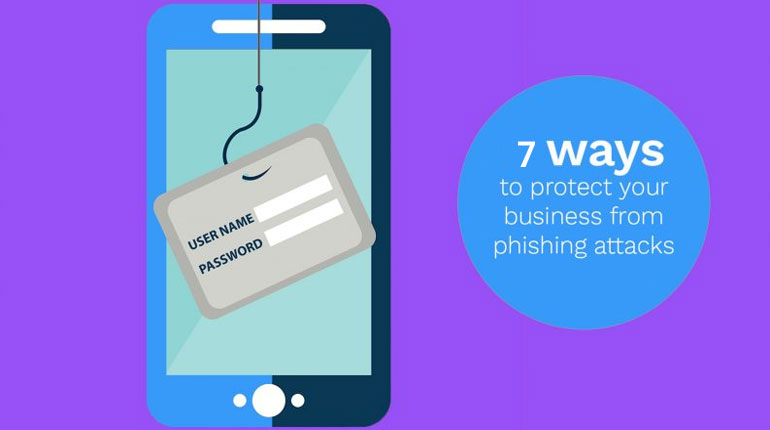Emails are one of the more popular methods of communication today. Most companies are highly dependent on emails in order to carry out their daily operations. The management team will send out directives to those under them via emails, and the same situation exists for communications between the company and potential clients. This is why phishing attacks are so prevalent amongst emails, and why it’s very important that the best practices be adopted, in order to safeguard your business.
In order to prevent yourself being a victim of phishing attacks, I’ve put together 7 of the best anti-phishing practices that you should adopt for your business:
1. Don’t Click on Just Anything
If you’re on a trusted website, then it’s fine for you to click around. However, links that appear in instant messages and random emails should rarely be clicked on. Consider hovering over links that you are not 100% sure about. Does the link lead to where it’s supposed to lead? When it comes to phishing emails, they’ll claim to be from a legitimate company, but when you click on the link(s) in the email, it’ll take you to a fake website, that somewhat resembles the real thing. This website will then proceed to ask you to fill in some personal information. Most of these phishing emails will introduce themselves with a “Dear Customer”, so you should be on full alert whenever you come across an email like that. If there is ever any doubt, then you should go to the official website manually, by putting the website address into the URL box. Beware from such email because someone may trying to hack your email.
2. Always Update Your Browser
The most popular browsers have security patches released for them on a regular basis. These updates are released whenever a hacker discovers a new vulnerability in their software, and are designed to plug up these security loopholes. It’s for these reasons you should never ignore messages about updating your browser. You want to ensure you’re as secure as possible from these phishing scammers.
3. DSN Pharming Attacks Protection
DNS pharming attacks are a newly created type of phishing attack, in that these attacks do not involve popups or emails. Rather, the hacker will poison the local DNS server of an individual. The end result of such an attack is the end-users inability to visit the website, as they are constantly rerouted to fake phishing sites. These fake sites however, do resemble the real thing, a great deal, designed solely for the purpose of capturing one’s financial and personal details. For example, an individual may attempt to visit their banking site, only to be directed to a fake site that closely resembles the actual site.
4. Report All Suspicious Activity
If you see or spot any suspicious activity on your companies account, then you should look to report it, as soon as possible. The quicker you are able to report it, the faster such problems will and can be resolved.
5. Use Firewalls
The very best firewalls are designed to act like buffers between your computer and potential online intruders. You should adopt two kinds of firewalls, the desktop and network variety. The desktop firewall is basically software, whereas the network firewall is a type of hardware. When both of these are used in conjunction, they dramatically decrease the chances of these hackers getting onto your network or computer.
6. Use Antivirus Software
There are 100s of reasons why you’ll want to use an antivirus tool. The special virus definitions that come with these security tools are designed to safeguard your system from the many security loopholes present on your system. Just make sure your software is always up-to-date. New virus definitions are added almost daily because new methods of infiltrating your system are always being discovered. Both firewall and anti-spyware software should also be used to prevent phishing attacks, and these programs should also be regularly updated. Firewalls are designed to prevent users from accessing your system through malicious files. Antivirus software, on the other hand, scans all the files on your computer and repairs or deletes any malicious file it finds. This helps to keep your system safe.
7. Be Cautious of Pop-Ups
Pop-up windows are designed to appear as a legitimate component of a website. In many cases, these popups are phishing attempts. All the most popular browsers are capable of blocking these popups, but it’s possible for you to allow popups depending on the website that you visit. If a popup manages to get through the blocker, then you shouldn’t hesitate to click on that cancel button, but make sure you click on the correct button, the one with the x, as sometimes these popup windows will have fake cancel buttons, which lead to the phishing website.







